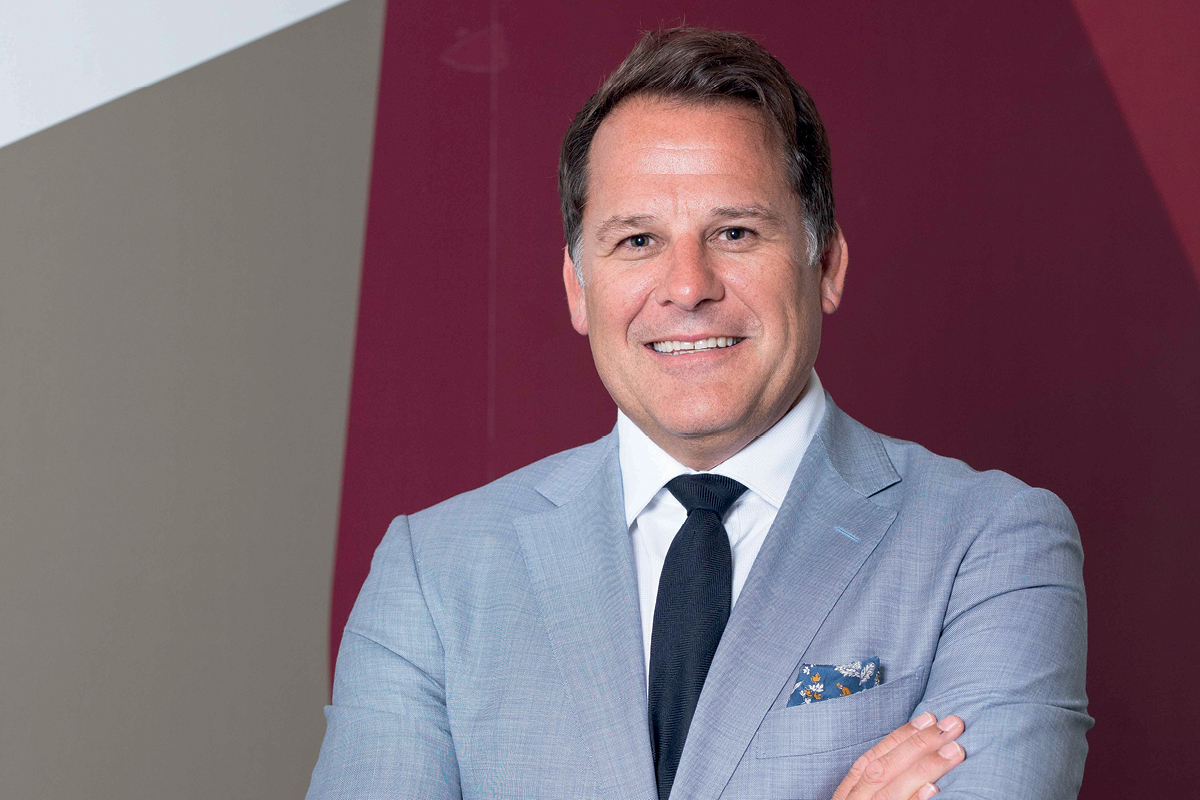Embracing change: Jonathon Clifton
Jonathon Clifton, Vistra’s Regional Managing Director for Asia–Pacific, believes maintaining a positive outlook while navigating change is the key to success.
There’s no doubt change brings challenges. It can cause upheaval in a business and create times of uncertainty for management and employees. But Jonathon Clifton prefers to look on the bright side; he sees change as an opportunity and therefore encourages his team to embrace it.

"Change can be exciting, but everyone needs some support in navigating that change," he says.
As Vistra’s Regional Managing Director for Asia–Pacific, Jonathon Clifton has guided his team through massive changes as the company has grown and evolved over the past decade. When Jonathon first joined in 2010, there were 180 people working across five offices.
Since then, Vistra has grown to become the only truly global corporate service, trust and fund administration provider headquartered in Asia, now employing 4,500 people in 45 jurisdictions across Asia–Pacific, North and South America, Europe and the Middle East.
"There’s often a tendency to view change through a negative lens," Jonathon notes.
"So we’ve always tried to communicate to our team that change creates opportunities. I think it’s really important that a leader has a clear sense of where we are heading and why we are heading there, and is then able to articulate that vision and purpose to employees and clients. This means that when you get stuck in the day-to-day grind and you’re going through a rough patch, you should be able to look up and see a north star. As an organisation, if you can embrace your team, embrace your people and engage your leadership team around the change journey, then ultimately you can be very successful."
"We’ve always tried to communicate to our team that change creates opportunities."
One of the things that sets Vistra apart from its competitors, Jonathon explains, is the fact that its headquarters are in Asia, rather than Europe.
"We feel we’ve got a point of differentiation in a sense of really understanding the market in this part of the world. We’ve had a presence in China going back close to 30 years. So we really understand the needs of both Chinese and broader Asian clients, be they high-net-worth individuals, corporates or fund managers," he says.
It is estimated that the number of HNWIs in China is approaching 4.4 million, which represents a huge opportunity for Vistra as these wealthy individuals begin succession planning.
"The growth of China over the past 20–30 years is without a doubt the single most influential factor economically within the region," Jonathon says. "Obviously, there’s been this huge growth in HNWIs and right now they’re looking to both plan for the future as well as protect what they’ve got. Over the past 10–15 years, we’ve seen the growth of a new industry with our private client and alternative investment sectors seeing unprecedented demand across APAC."
"If you can embrace your team, embrace your people and engage your leadership team around the change journey, then ultimately you can be very successful."
Jonathon explains that Vistra "puts the client at the heart of everything it does". This client-focused approach includes investing in technology to deliver a better experience for both clients and employees.
"We have built a number of portals and digital platforms to serve the needs of our clients," Jonathon says. "When we’re building our tech stack, we ask ourselves, ‘What is the client looking for? Are there any pain points that clients are going through?’ And then we work backwards from there."
After 10 years working at Vistra and eight years at PwC before that, Jonathon has a wealth of leadership experience. Prior to working at PwC, however, he spent three years playing professional rugby in Japan. Pointing out there are many similarities between sport and business, he says many of the lessons he learned on the rugby field can also be applied in the boardroom.
"In both sport and business, you need to have a strategy or a game plan," he explains, adding that teamwork is also vital in both contexts. "You need different people in different positions; not everyone should be trying to do the same thing. So it’s recognising the diversity that you need to achieve your goal as a team."
The other key similarities, Jonathon says, are the value of hard work and maintaining a sense of fun.
"All other things being equal, if you work harder than your opposition you typically win in the long run. Working harder than your opposition is a mindset – I’m a big believer in that and have seen many teams, sporting and corporate, overachieve their goals via the sum of their collective will to succeed. Setbacks along the way are important and a natural part of the journey. Setbacks provide opportunities to reflect on where you need to improve as a team – a good leader understands this. Have some fun along the way too. Doing things with a smile on your face makes a difference, in my experience."